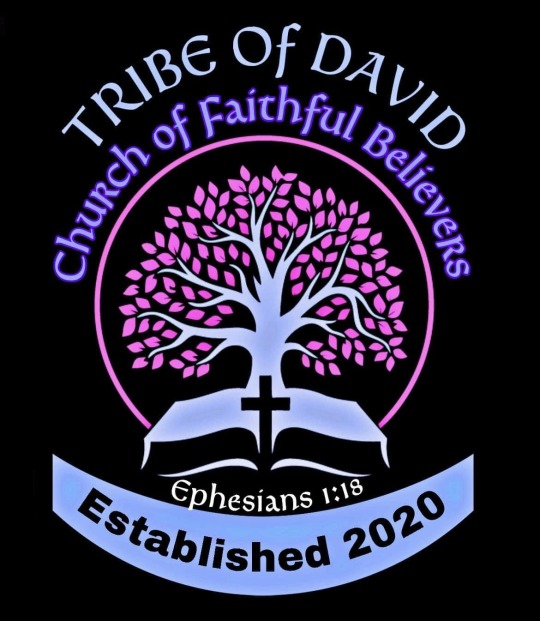#Charitable Gift Annuities
Text
🤝 Make your charitable giving count! Learn how to maximize your impact and deductions with tax-efficient strategies. Support your favorite causes while optimizing your financial situation. Giving back has never been so rewarding.
#Charitable Giving#Tax Benefits#Tax-Advantaged Accounts#Itemize Deductions#Appreciated Assets#Bunching Donations#Qualified Charitable Distributions#Charitable Gift Annuities#Impact Investing#AGI Limits#Tax Professional
0 notes
Text
How to Help Your Family Wealth Last for Generations
Suppose you have accumulated significant wealth and want to pass it on to your heirs. In that case, you may wonder how to ensure they use it wisely and responsibly. After all, you want to make sure your hard-earned money is well-spent by the next generation.
Fortunately, some strategies can help you preserve and protect your family's wealth for generations. Here are some tips to consider:

Communicate your values and expectations.
One of the most important things you can do is to have open and honest conversations with your family members about your values, goals, and expectations regarding money. Share your story of how you built your wealth, what challenges you faced, and what lessons you learned. Explain how you want your wealth to benefit your family and society. Encourage your heirs to ask questions, express their opinions, and share their aspirations.
Communicating your values and expectations can help your family develop a shared understanding and appreciation of your wealth. You can also foster a culture of trust, respect, and responsibility among your family members.

Educate and mentor your heirs.
Another critical strategy is to educate and mentor your heirs on financial literacy and stewardship. Teach them the basics of budgeting, saving, investing, and philanthropy. Help them develop the skills and knowledge to manage their finances and make intelligent decisions. Provide them with opportunities to practice and apply what they learn, such as giving them an allowance, involving them in family business decisions, or supporting their entrepreneurial ventures.
Educating and mentoring your heirs can help them become confident and competent in handling money. You can also instill in them a sense of purpose and gratitude for the wealth they inherit.

Establish a governance structure.
A third strategy is establishing a governance structure for your family's wealth. This involves creating a formal framework for how your wealth will be distributed, managed, and monitored over time. For example, you can set up a family office, a trust, a foundation, or a combination of these entities. Also, appoint a board of directors, a trustee, an advisor, or a committee to oversee the operations and performance of these entities.
By establishing a governance structure, you can ensure that your wealth aligns with your values and objectives. You can also provide clarity, accountability, and transparency for your family members.

Seek professional guidance.
A final strategy is to seek professional guidance from experts specializing in estate planning, tax planning, investment management, philanthropy, and family dynamics. These professionals can help you develop a comprehensive program that addresses your unique needs and goals. They can also help you navigate the complex legal, financial, and emotional issues that may arise when transferring wealth across generations.
By seeking professional guidance, you can benefit from the expertise and experience of others who have helped families like yours achieve their legacy goals. You can also avoid costly mistakes and pitfalls that could jeopardize your wealth or cause conflicts among your family members.

Prepare for an excellent wealth transfer.
According to some estimates, over $68 trillion will be transferred from baby boomers to their heirs over the next 25 years. This is the most sizable intergenerational transfer of wealth in history. If you are part of this excellent wealth transfer, you must prepare yourself and your family for this momentous event.
One way to prepare is to assess your estate plan regularly and update it as needed. Ensure that your wills, trusts, beneficiary designations, powers of attorney, health care directives, and records are current and reflect your wishes. Consider using strategies such as gifting, charitable giving, life insurance, annuities, or trusts to reduce taxes or protect assets from creditors or lawsuits.
Another way to prepare is to involve your heirs in the planning process. Share your intentions and expectations for how they will inherit and use the wealth with them. Discuss with them the potential challenges and opportunities that come with inheriting wealth. Help them understand their roles and responsibilities as stewards of the family legacy.
By preparing for the excellent wealth transfer, you can ensure that your wealth will be transferred smoothly and efficiently to the next generation. You can also help your family avoid common pitfalls such as overspending, mismanagement, or disputes.
This blog post helps you implement ways to help your family's wealth last for generations. If you need more assistance with this topic, please contact me at (816) 551 - 7961 or visit my website at www.legacywealthjoy.com. I would love to hear from you and help you achieve your legacy goals.
References
"Important Steps for Proper Retirement Planning." Personal & Business Banking - Banks in Delaware, www.wsfsbank.com/help-guidance/knowledge-center/important-steps-for-proper-retirement-planning. It was accessed on 20 July 2023.
3 notes
·
View notes
Text
How to Gift Using a Charitable Gift Annuity
http://dlvr.it/TB36b3
0 notes
Text
Estate Tax Planning in New York: A Comprehensive Guide
Estate tax planning is an essential aspect of managing your assets and ensuring your loved ones are taken care of after your passing. In New York, the estate tax system presents unique challenges and opportunities, requiring careful planning and strategic decision-making. This guide will provide an overview of estate tax planning new york, highlighting key considerations and strategies to help you navigate the complexities of this process.
Understanding Estate Tax in New York
New York imposes its own estate tax separate from the federal estate tax. The New York estate tax exemption is $6.58 million per individual. Estates valued above this threshold are subject to estate taxes, which can be as high as 16%. This exemption amount is significant, but the state employs a "cliff" structure, meaning if your estate exceeds the exemption by more than 5%, the entire estate value becomes taxable, not just the amount over the exemption.
Key Considerations in Estate Tax Planning
Estate Valuation: The first step in estate tax planning is to accurately assess the value of your estate. This includes all assets such as real estate, investments, retirement accounts, life insurance policies, and personal property. Understanding the total value of your estate is crucial for determining potential tax liabilities.
Exemptions and Deductions: Utilize all available exemptions and deductions to minimize your estate tax burden. In New York, certain deductions, such as those for funeral expenses, debts, and administrative costs, can reduce the taxable value of your estate. Additionally, understanding the interplay between federal and state exemptions can help in strategic planning.
Gifting Strategies: One effective way to reduce the size of your taxable estate is through gifting. The annual federal gift tax exclusion allows you to gift up to $16,000 per recipient per year without incurring gift tax. By strategically gifting assets during your lifetime, you can lower the overall value of your estate, thereby reducing potential estate taxes.
Trusts and Estate Planning Tools: Establishing trusts can be a powerful tool in estate tax planning. Trusts, such as irrevocable life insurance trusts (ILITs), can remove life insurance proceeds from your taxable estate. Additionally, grantor retained annuity trusts (GRATs) and qualified personal residence trusts (QPRTs) can help in transferring assets to beneficiaries with minimal tax impact.
Charitable Donations: Charitable donations can provide both philanthropic fulfillment and tax benefits. Donating to qualified charities can reduce your taxable estate and potentially provide income tax deductions. Charitable remainder trusts (CRTs) and charitable lead trusts (CLTs) are advanced planning tools that offer income streams to beneficiaries while benefiting charitable organizations.
Portability of Federal Estate Tax Exemption: While New York does not have portability provisions for its estate tax exemption, the federal estate tax system does. This means that if one spouse dies and does not fully use their federal estate tax exemption, the surviving spouse can potentially use the unused portion. Coordinating federal and state estate tax planning can optimize tax savings.
Working with Estate Planning Professionals
Given the complexities of estate tax planning in New York, it is highly advisable to work with experienced estate planning professionals, including attorneys, accountants, and financial advisors. These experts can help you navigate the intricacies of state and federal tax laws, develop a personalized estate plan, and ensure your wishes are carried out effectively.
For More Info:-
new york estate planning
prenuptial agreement
0 notes
Text
Two Major Types of Irrevocable Trusts

While revocable trusts can be modified by those who create them, they offer less protection to beneficiaries than irrevocable trusts, which release all assets from the ownership of the grantor and facilitate the movement of those assets to the beneficiary without the grantor’s input or control.
Irrevocable trusts can be lifetime trusts or testamentary trusts. Grantors create and fund lifetime trusts (inter vivos trusts) while still alive. Common types of lifetime trusts include irrevocable life insurance trusts (which transfer life insurance benefits), charitable remainder trusts (which donate money to charity after paying beneficiaries for a certain period of time), and lifetime gifting trusts such as grantor-retained annuity trusts (which limit gift and estate taxes).
Testamentary trusts, by contrast, are made after the grantor's death and funded according to that grantor’s will. While requesting the establishment of an irrevocable trust through a clause in a will is far less complicated and expensive than establishing a living trust while alive, a testamentary trust automatically becomes part of the probate process, which can slow the distribution of assets and give the public access to certain estate records.
0 notes
Text
How Financial Advisors Can Help Executives Reduce Their Tax Liabilities?

Financial advisors offering financial planning services in Fort Worth TX play a critical role in helping executives reduce their tax liabilities through various strategies tailored to individual circumstances. These strategies can be complex and multifaceted, taking into account current tax laws, future financial goals, and the specific financial situation of the executive. Here are several key ways in which financial advisors assist executives in managing and minimizing their tax liabilities:
Strategic Income Deferral: Financial advisors often recommend strategies to defer income, particularly for high-earning executives. This can involve options like deferred compensation plans, where a portion of the executive’s salary or bonus is deferred to a future date, typically when the individual is in a lower tax bracket, such as during retirement. This not only delays the tax liability but potentially reduces the overall tax burden.
Tax-Efficient Investment Strategies: Advisors guide executives in building tax-efficient investment portfolios. This includes investing in tax-advantaged accounts such as 401(k)s, IRAs, and Roth IRAs. Additionally, advisors might recommend municipal bonds, which are often exempt from federal (and sometimes state and local) taxes, or index funds and ETFs that typically generate fewer taxable events compared to actively managed funds.
Utilization of Stock Options: Many executives receive stock options as part of their compensation package. Financial advisors can help navigate the complexities of exercising these options in a tax-efficient manner. This may involve strategies such as exercising options in a year when the executive's income is lower, using incentive stock options (ISOs) to qualify for favorable tax treatment, or implementing net exercise strategies to minimize out-of-pocket costs and tax impact.
Estate and Gift Tax Planning: To mitigate the impact of estate and gift taxes, financial advisors work with executives to create comprehensive estate plans. This can include setting up trusts, such as grantor-retained annuity trusts (GRATs) or charitable remainder trusts (CRTs), which can help transfer wealth in a tax-efficient manner. Advisors also assist with annual gift tax exclusion strategies, allowing executives to transfer assets to heirs while minimizing tax consequences.
Charitable Giving: Advisors often recommend charitable giving as a way to reduce taxable income. Executives can donate appreciated stock or other assets directly to charities, avoiding capital gains taxes and receiving a deduction for the full market value. Setting up donor-advised funds (DAFs) or charitable lead trusts (CLTs) can provide ongoing tax benefits while supporting philanthropic goals.
Tax Loss Harvesting: By strategically selling investments that have lost value, financial advisors help executives realize losses that can offset capital gains elsewhere in their portfolio. This process, known as tax loss harvesting, reduces the overall capital gains tax liability. Advisors ensure that this strategy is executed within the confines of tax regulations to avoid wash sale rules, which could nullify the tax benefits.
Maximizing Deductions and Credits: Advisors ensure that executives take full advantage of available tax deductions and credits. This might include deductions for mortgage interest, state and local taxes, and business-related expenses, as well as credits for education, energy-efficient home improvements, and more. Advisors stay current on tax law changes to capitalize on new opportunities for tax savings.
Cross-Border Tax Planning: For executives with international responsibilities or investments, cross-border tax planning is crucial. Advisors navigate the complexities of foreign tax credits, treaties, and the intricacies of income sourcing to optimize global tax liabilities. They help ensure compliance with both domestic and international tax regulations, minimizing the risk of double taxation.
In conclusion, financial advisors provide invaluable expertise to executives in reducing their tax liabilities through a combination of income deferral, tax-efficient investing, strategic use of stock options, estate and gift planning, charitable giving, tax loss harvesting, maximizing deductions and credits, and cross-border tax planning. These strategies require a deep understanding of tax laws and a personalized approach to align with the executive's financial goals.
0 notes
Text
Different Types of a Fundraising Letter
Writing Fundraising letters are an essential tool for nonprofit organizations and charitable causes to solicit donations, support, and participation from individuals, businesses, and other entities. These letters come in various types, each serving a distinct purpose and targeting specific audiences. Here are different types of fundraising letters:

Appeal Letters: Appeal letters are perhaps the most common type of fundraising letter. They are typically sent out to donors, supporters, or prospects to request donations for a specific cause, campaign, or project. These letters often highlight the urgency or importance of the cause and provide compelling reasons for recipients to contribute financially. Appeal letters may focus on different themes such as emergency relief, community development, education, healthcare, or environmental conservation.
Thank-You Letters: Thank-you letters are crucial for acknowledging donors and expressing gratitude for their contributions. These letters are sent after receiving a donation and serve to recognize donors' generosity, reinforce their support for the organization's mission, and encourage future donations. Thank-you letters often personalize the donor's impact and may include stories, testimonials, or updates on how their donation is making a difference.
Event Invitation Letters: Event invitation letters are used to invite individuals or businesses to participate in fundraising events such as galas, charity auctions, golf tournaments, or benefit concerts. These letters provide details about the event, including the date, time, location, agenda, and any special guests or activities planned. Event invitation letters aim to generate excitement and encourage attendance by highlighting the event's purpose, benefits, and impact on the cause.
Membership Renewal Letters: Membership renewal letters are targeted at existing members of an organization or program to encourage them to renew their membership for another term. These letters typically outline the benefits of membership, such as access to exclusive content, discounts, or events, and remind recipients of the value they receive from their membership. Membership renewal letters may also include incentives or special offers to incentivize prompt renewal.
Matching Gift Letters: Matching gift letters are designed to leverage corporate matching gift programs, where employers match their employees' charitable contributions to eligible nonprofit organizations. These letters inform donors about the availability of matching gifts from their employers and provide instructions on how to initiate the matching gift process. Matching gift letters emphasize the impact of doubling or even tripling the value of donors' contributions through matching gifts.
Campaign Progress Updates: Campaign progress update letters are used to inform donors and supporters about the progress of a fundraising campaign or initiative. These letters provide updates on fundraising milestones, achievements, and goals reached, as well as insights into how donations are being utilized to further the organization's mission. Campaign progress update letters help maintain donor engagement, transparency, and accountability throughout the fundraising process.
Legacy Giving Letters: Legacy giving letters are aimed at donors interested in leaving a lasting legacy through planned giving or bequests in their wills. These letters educate donors about the various planned giving options available, such as bequests, charitable annuities, trusts, or life insurance policies, and encourage them to consider including the organization in their estate plans. Legacy giving letters emphasize the impact of planned gifts in sustaining the organization's work for future generations.
Special Appeal Letters: Special appeal letters are targeted at specific segments of donors or supporters based on their interests, preferences, or giving history. These letters may focus on particular programs, projects, or initiatives that align with donors' interests or past contributions. Special appeal letters tailor the messaging and ask to resonate with the targeted audience, increasing the likelihood of donor engagement and support.
Holiday Giving Letters: Holiday giving letters capitalize on the spirit of generosity and goodwill during festive seasons such as Christmas, Thanksgiving, or New Year's. These letters appeal to donors' sentiments and encourage them to make charitable contributions as part of their holiday celebrations. Holiday giving letters often emphasize the importance of giving back to the community and making a positive impact during the holiday season.
Reactivation Letters: Reactivation letters are aimed at lapsed donors or supporters who have not contributed to the organization in some time. These letters seek to re-engage lapsed donors by reminding them of their past support, updating them on recent accomplishments or initiatives, and inviting them to renew their commitment to the cause. Reactivation letters may include special incentives or offers to encourage donors to resume their giving.
In summary, fundraising letters come in various types, each serving a specific purpose in engaging donors, supporters, and prospects, and soliciting contributions for nonprofit organizations and charitable causes. Whether appealing for donations, expressing gratitude, inviting participation in events, or promoting planned giving opportunities, fundraising letters play a vital role in cultivating donor relationships, generating support, and advancing the mission of charitable organizations.
youtube
SITES WE SUPPORT
Print Mail Letters & Letter API – Wordpress
SOCIAL LINKS
Facebook
Twitter
LinkedIn
Instagram
Pinterest
0 notes
Text
Are Charitable Gift Annuities a Good Idea?
There is not one answer to the question “Are charitable gift annuities a good idea” since each person’s financial situation is different. It is impossible to make a general recommendation; however, there are some definite benefits to investing money in a charitable gift annuity.

Generally, donors will qualify for an immediate tax deduction for the gift portion of the charitable gift annuity, and if the gift is funded with appreciated stock or mutual fund shares, annuitants may also avoid some capital gains tax. A charitable gift annuity provides a fixed income for life because it does not fluctuate with the stock market. A portion of the income is often tax-free as well.
A charitable gift annuity is simple to set up. Unlike a trust, it can be established without a lawyer, but consulting with an advisor is always a good idea. Using part of an estate to fund a charitable gift annuity removes that piece from the taxable estate, which could then help reduce or avoid estate taxes.[1]
Most importantly, the gift portion of a charitable gift annuity has a major impact on GFA World’s ministries in Africa and Asia. Receiving generous donations helps ensure GFA can continue to share the love and grace of Jesus with those who need it most. With programs to help in many areas― from disaster relief to needed medical attention, from ministering to widows and orphans to providing mosquito nets―any gift or donation makes a huge difference.[2]

Since GFA was founded over 40 years ago, we have relied on faithful giving to share the love of Christ with so many who’ve not heard the name of Christ even once.
Child sponsorships help us provide vital assistance to at risk children, like education assistance, nutritious food, healthcare and hygiene training for children in some of the world’s poorest areas.
National missionaries, vital workers who know the people and culture already, also have sponsors who provide funding for the resources and training to work and minister where no one else is.
Donations can provide income-generating gifts of farm animals or sewing machines that can lift families out of the cycle of poverty. Donations can also provide for drilling Jesus wells to provide clean water, and constructing proper sanitation facilities for those in need.
Click here, to read more about this article.
Click here, to read more blogs in Gospel for Asia.Net
#Abject Poverty#Absolute Poverty#Bridge of Hope#Generational Poverty#GFA-Supported Children’s Ministry#GFA-Supported Workers#Gospel for Asia#Poverty Alleviation#Poverty Alleviation Program
0 notes
Text
Exploring Legacy Trusts: Structuring Trusts to Preserve Your Legacy
In the realm of estate planning, one of the most powerful tools available for preserving your legacy is the establishment of legacy trusts. These specialized trusts are designed not only to protect your assets but also to ensure that your values, traditions, and wishes endure for generations to come. Let's delve into the world of legacy trusts and explore how they can help structure your estate plan to preserve your legacy.
At its core, a legacy trust is a type of irrevocable trust specifically crafted to preserve your wealth and values while minimizing tax liabilities and protecting assets from creditors. Unlike other trusts that may focus solely on financial matters, legacy trusts go beyond monetary concerns, aiming to safeguard your family's heritage, traditions, and philanthropic endeavors.
One of the key features of a legacy trust is its flexibility. It allows you to dictate how your assets are distributed and managed long after you're gone, ensuring that your wishes are carried out according to your precise instructions. Whether you want to provide ongoing support for family members, fund educational endeavors, or contribute to charitable causes, a legacy trust can be tailored to align with your goals and values.
Another significant advantage of legacy trusts is their ability to shield assets from potential threats such as lawsuits, creditors, and divorces. By placing your assets into an irrevocable trust, you effectively remove them from your personal ownership, making them less vulnerable to legal claims or financial losses. This added layer of protection can provide invaluable peace of mind, knowing that your hard-earned wealth is safeguarded for the benefit of your loved ones.
Moreover, legacy trusts offer valuable tax benefits that can help maximize the amount of wealth transferred to future generations. By leveraging various estate planning strategies, such as generation-skipping transfers and grantor-retained annuity trusts, you can minimize estate and gift tax liabilities, allowing more of your assets to be passed down to your heirs intact. This can have a significant impact on the long-term financial security of your family and help preserve your legacy for years to come.
Additionally, legacy trusts provide a level of privacy that may not be available with other estate planning vehicles. Unlike wills, which are subject to public probate proceedings, trusts operate outside of the probate process, keeping your financial affairs confidential and shielding your family from unnecessary scrutiny. This confidentiality can be especially beneficial for families who wish to maintain their privacy and avoid potential disputes or challenges to their estate plan.
In essence, a legacy trust serves as a powerful tool for shaping your family's future and leaving a lasting impact on the world. By structuring your estate plan around the principles of preservation, protection, and purpose, you can ensure that your legacy endures for generations to come.
In conclusion, experts providing legacy estate planning services in Fort Worth TX offer a comprehensive solution for preserving your wealth, values, and traditions while minimizing tax liabilities and protecting assets from potential threats.
0 notes
Text
Charitable Gift Annuities: Benefit Yourself and Your Favorite Charity
(Kiplinger) - Donating to charitable gift annuities can provide you with tax breaks now and income later. Here’s what you need to know.
Melissa Lynn Potts, C.P.A.
0 notes
Text
Mount Sinai South Nassau Receives $5 Million Donation
Mount Sinai South Nassau has received the largest single gift in the hospital’s history – a $5 million pledge from The Louis Feil Charitable Lead Annuity Trust to name the hospital’s new patient care pavilion. The new four-story, 100,000-square-foot building, scheduled to open in spring 2024, will be named the Feil Family Pavilion. It will […]
Original source:…
View On WordPress
#current trends and issues in nursing#current trends in nursing#future trends in nursing#new trends in nursing#nursing today transition and trends#registered nurse definition#trends and issues in nursing#Trends in nursing#trends in nursing education
0 notes
Text
How to Help Your Family Wealth Last for Generations
Suppose you have accumulated significant wealth and want to pass it on to your heirs. In that case, you may wonder how to ensure they use it wisely and responsibly. After all, you want to make sure your hard-earned money is well-spent by the next generation.
Fortunately, some strategies can help you preserve and protect your family's wealth for generations. Here are some tips to consider:
Communicate your values and expectations.
One of the most important things you can do is to have open and honest conversations with your family members about your values, goals, and expectations regarding money. Share your story of how you built your wealth, what challenges you faced, and what lessons you learned. Explain how you want your wealth to benefit your family and society. Encourage your heirs to ask questions, express their opinions, and share their aspirations.
Communicating your values and expectations can help your family develop a shared understanding and appreciation of your wealth. You can also foster a culture of trust, respect, and responsibility among your family members.
Educate and mentor your heirs.
Another critical strategy is to educate and mentor your heirs on financial literacy and stewardship. Teach them the basics of budgeting, saving, investing, and philanthropy. Help them develop the skills and knowledge to manage their finances and make intelligent decisions. Provide them with opportunities to practice and apply what they learn, such as giving them an allowance, involving them in family business decisions, or supporting their entrepreneurial ventures.
Educating and mentoring your heirs can help them become confident and competent in handling money. You can also instill in them a sense of purpose and gratitude for the wealth they inherit.
Establish a governance structure.
A third strategy is establishing a governance structure for your family's wealth. This involves creating a formal framework for how your wealth will be distributed, managed, and monitored over time. For example, you can set up a family office, a trust, a foundation, or a combination of these entities. Also, appoint a board of directors, a trustee, an advisor, or a committee to oversee the operations and performance of these entities.
By establishing a governance structure, you can ensure that your wealth aligns with your values and objectives. You can also provide clarity, accountability, and transparency for your family members.
Seek professional guidance.
A final strategy is to seek professional guidance from experts specializing in estate planning, tax planning, investment management, philanthropy, and family dynamics. These professionals can help you develop a comprehensive program that addresses your unique needs and goals. They can also help you navigate the complex legal, financial, and emotional issues that may arise when transferring wealth across generations.
By seeking professional guidance, you can benefit from the expertise and experience of others who have helped families like yours achieve their legacy goals. You can also avoid costly mistakes and pitfalls that could jeopardize your wealth or cause conflicts among your family members.
Prepare for an excellent wealth transfer.
According to some estimates, over $68 trillion will be transferred from baby boomers to their heirs over the next 25 years. This is the most sizable intergenerational transfer of wealth in history. If you are part of this excellent wealth transfer, you must prepare yourself and your family for this momentous event.
One way to prepare is to assess your estate plan regularly and update it as needed. Ensure that your wills, trusts, beneficiary designations, powers of attorney, health care directives, and records are current and reflect your wishes. Consider using strategies such as gifting, charitable giving, life insurance, annuities, or trusts to reduce taxes or protect assets from creditors or lawsuits.
Another way to prepare is to involve your heirs in the planning process. Share your intentions and expectations for how they will inherit and use the wealth with them. Discuss with them the potential challenges and opportunities that come with inheriting wealth. Help them understand their roles and responsibilities as stewards of the family legacy.
By preparing for the excellent wealth transfer, you can ensure that your wealth will be transferred smoothly and efficiently to the next generation. You can also help your family avoid common pitfalls such as overspending, mismanagement, or disputes.
This blog post helps you implement ways to help your family's wealth last for generations. If you need more assistance with this topic, please contact me at (816) 551 - 7961 or visit my website at www.legacywealthjoy.com. I would love to hear from you and help you achieve your legacy goals.
References
"Important Steps for Proper Retirement Planning." Personal & Business Banking - Banks in Delaware, www.wsfsbank.com/help-guidance/knowledge-center/important-steps-for-proper-retirement-planning. It was accessed on 20 July 2023.
0 notes
Text
Tax Implications of Charitable Donations
What are the tax implications of charitable donations made through an estate plan, trust, and/or living trust?
Charitable donations made through an estate plan, trust, or living trust can have different tax implications depending on the type of donation and the structure of the estate plan or trust. Some common types of charitable donations that may be made through an estate plan or trust include:
Charitable Bequests
A charitable bequest is a gift of property or assets made through a will or living trust. Bequests can be made to a charitable organization or to a charitable remainder trust, which is a type of trust that holds assets for the benefit of a charitable organization. Bequests are generally tax-deductible for the donor's estate.
Charitable Lead Trusts
A charitable lead trust is a type of trust that makes payments to a charitable organization for a specified period of time, after which the remaining assets are transferred to non-charitable beneficiaries (such as family members). Donors can receive a charitable deduction for the value of the payments made to the charitable organization. Still, they may also have to pay gift or estate tax on the value of the assets transferred to the non-charitable beneficiaries.
Charitable Remainder Trusts
A charitable remainder trust is a type of trust that holds assets for the benefit of a charitable organization and pays the remainder to non-charitable beneficiaries (such as family members) after a specified period of time. Donors can receive a charitable deduction for the value of the assets transferred to the trust, but they may also have to pay gift or estate tax on the assets transferred to the non-charitable beneficiaries.
Charitable Gift Annuities
A charitable gift annuity is a contract between a donor and a charitable organization in which the donor makes a charitable gift, and the organization agrees to pay a fixed annuity to the donor (or another beneficiary) for life. Donors can receive a charitable deduction for the value of the gift, but they may also have to pay income tax on the annuity payments.
It is important to consult with a tax professional or an estate planning lawyer to understand the tax implications of charitable donations made through an estate plan, trust, or living trust. These donations can be a useful tool for achieving both charitable and tax planning goals, but it is important to carefully consider the potential tax consequences before making any charitable gifts.
youtube
Estate Planning Attorney Free Consultation In Utah
If you need legal help, call this law firm and talk with our experienced attorneys about estate planning for a FREE consultation.
We help you with Estate Planning, Wills, Trusts, Power of Attorney, Health Care Directive, Estate Administration, Probate and More
Parklin Law - Estate Planning
5772 W 8030 S, # N206
West Jordan UT 84081
(801) 618-0699
40.605070, -112.027530
Disclaimer: This is not legal advice and is simply an answer to a question and that if legal advice is sought to contact a licensed attorney in the appropriate jurisdiction.
#Parklin Law#Estate Planning Attorney#Estate Planning Lawyer#Estate Plan Attorney Near Me#Estate Plan Lawyer Utah#Youtube
1 note
·
View note
Text

The Tribe of David Endowment Fund is a permanent amount of capital invested for growth and income. The assets of the fund are set aside and invested, so that only the interest of the principal is made available for funding church programs and ministries.
The purpose of the fund is to establish a permanent reserve, the principal of what shall be preserved in perpetuity, and the interest income shall be used to extend the programs of the church. It also provides a means for you to express special thanks to God for blessings and gifts you have received and allows you to return a portion of accumulated assets of your life’s work.
The funds grow through careful investing and appreciation generated through investments. The funds also grow through gifts, memorials and bequests.
Tribe of David is a community who knows the importance of planning and investing to assure the stability, vitality and future of our church. Your contribution to the Endowment Fund of Tribe of David is an expression of faith, generosity and of gratitude for all the blessings from God.
Tribe of David Endowment Committee shall consist of not less than Five members selected by the Pastor and Joint Board. The committee shall be responsible for encouraging the membership to make contributions to the Endowment Fund. The committee has the responsibility to solicit gifts, and to manage funds. Members of the committee will serve a three-year term and may serve two consecutive terms.
Gifts of most any kind and size are welcomed by the fund, however some may be restricted by church policies.
Yes. Gifts to a special memorial or special event are given in recognition of a person’s life or celebration of an event in a person’s life.
Yes. They would be received and treated as other gifts are received.
Endowments are funded through outright gifts, pledges, donations of securities or other non-cash assets as well as through a variety of planned gifts. These gifts include gifts in your will, charitable gifts annuities, beneficiary designations in retirement plans, financial accounts, insurance policies and gifts of property.
A gift to the Tribe of David Endowment Fund reflects our faith and love in Christ. As a Christian steward, we give back to God as a way of life out of the abundance from which God has gifted us.
Yes! Without a will, the laws of the state will determine who will receive your assets and who will manage your estate. As a result, the state may not include all the persons or charities that you would like to benefit. A will allows you to appoint a guardian for you minor children, choose a representative to carry out your wishes, and determine the final distribution of your estate assets. Giving through a will and through beneficiary designations are some of the simplest ways to make a planned gift. You may state in your will the amount or percentage of assets that are to pass to the church. You receive an estate tax deduction for the gift. There is no limit on the amount that can be deducted for estate tax purposes.
The Endowment Committee invites you to inquire further if you are interested in any area of the Tribe of David Endowment Fund or charitable giving to the church. Please contact the (TODCFB) Office
0 notes
Text
Pine grove financial calculators

PINE GROVE FINANCIAL CALCULATORS SOFTWARE
PINE GROVE FINANCIAL CALCULATORS DOWNLOAD
PINE GROVE FINANCIAL CALCULATORS FREE
Rowe Price has a number of retirement-, tax- and estate-planning tools and worksheets at its Tools and Calculators web page.Ĭhoose to Save has many calculators for consumer use addressing savings-related issues, including those pertaining to college funding, automotive financing, budgeting for expenses and saving, credit card rate and rebate evaluation and home mortgage analysis.
PINE GROVE FINANCIAL CALCULATORS SOFTWARE
Time Value Software TCalc Financial Calculators is a robust collection of online calculators for personal financial planning, including future/present value, savings, loans, leasing, etc. It offers planning tools (click on "Planning Tools") such as: a document assembly checklist information and forms for annuity calculations life expectancy tables statutory power of attorney and medical treatment forms worksheets for income tax planning retirement planning tables and forms and, from the Internal Revenue Service, income, estate and generation-skipping tax forms.įiscal Agents Financial Tools offers a variety of retirement, mortgage and loan calculators as well as personal planners all apply Canadian methodology, but many of the calculators are useful to U.S. Social Security Administration provides online calculators for both basic and detailed calculations of Social Security benefits available to an individual a more detailed calculator can be downloaded for free.Īdvisortek has financial-planning calculators for rates of return, portfolio evaluation, retirement and investment diversification.ī furnishes a variety of online calculators, including: mortgages small business (profit margins and internal ratios) credit cards and CDs (laddering, interest, investments and savings goals).ĬCH Financial Planning Toolkit presents a variety of online financial calculators including mortgage, loan, business, investment and retirement calculators. It also addresses remaining balance, balloon payment, accelerated payment and refinancing. This program calculates compound interest, including days between dates.
PINE GROVE FINANCIAL CALCULATORS DOWNLOAD
Pine Grove Software offers the Loan*Calculator!Plus for Windows ( download it from this site). It does sophisticated loan amortization calculation and amortization schedule preparation, including both fixed rate and adjustable rate mortgages. Time Value Software has the ultimate online amortization program. includes various online calculators to compute mortgage, mortgage refinancing and consolidation, financial and basic amortization. Interest.Com Mortgage and Financial Calculators presents a variety of online and shareware loan and mortgage calculators for various loan situations. It includes calculators for charitable gift annuities, CLTs, CRATs and CRUTs.Īssetstream provides an advanced calculator that computes the tax advantages of donating appreciated stock to charity, taking into account both federal and state income tax rates.Ĭharity Navigator provides a basic income tax giving calculator for donors in various tax brackets and helps to compute net cost and tax savings from charitable contributions.
PINE GROVE FINANCIAL CALCULATORS FREE
PhilantroCalc for the Web is free via Ashland University as well as other charitable organizations' websites. University of Georgia Planned Giving Calculator does basic calculations for charitable trusts, gift annuities and pooled-income funds. You'll find a free, online planned gifts calculator for professionals that enables you to make calculations for charitable remainder annuity trusts (CRATs), charitable remainder unitrusts (CRUTs) and charitable lead trusts (CLTs). Just click on "GiftLaw Calculator" on the left side menu. As such, it can be found on the Texas A & M Foundation website, which also has other planned giving resources. GiftLaw Calculator, from Crescendo Interactive, Inc., is available for inclusion in websites of planned giving organizations. Savings Bond Pro(R) is its new savings bond pricing system for finding the valuation of savings bonds by financial institutions, and value tables. Its Savings Bond Wizard™ software helps you to inventory and value United States Savings Bonds. The Bureau of Public Debt has the Online Savings Bond Calculator for computing the value of EE, E, I bonds and Savings Notes. (In either Windows XP or the Macintosh, click on any blue, underlined text to launch the website described.) Calculators and Internet resources relating to pension plans, individual retirement accounts (IRAs) and Roth IRAs will be addressed in the next newsletter. Also included are resources that you may wish to suggest to clients for their personal use. How many times a day could you use quick, standalone calculations that would spare you having to launch larger, more comprehensive estate or financial planning programs? Here are a few examples of such calculating resources, arranged by category. You may be surprised at how many calculating resources that could be of use in your practice are available free on the Internet.

0 notes